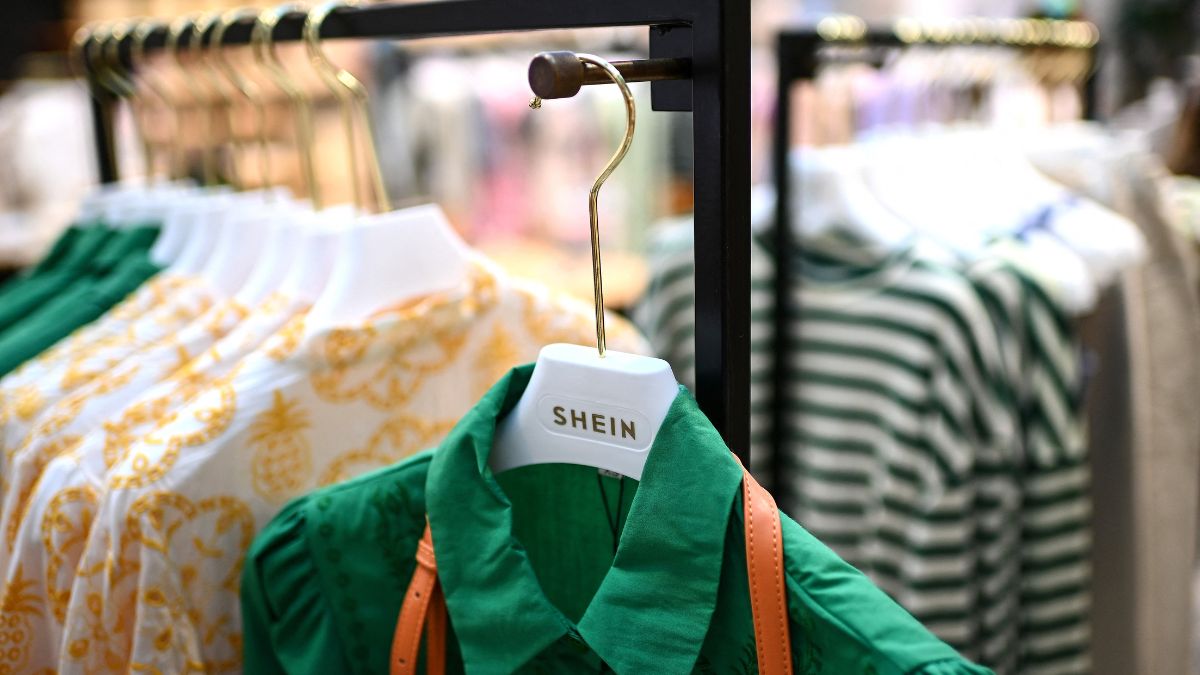China’s fast fashion brand Shein is back in India. Reliance Retail has launched an app to sell Shein’s economical products in India. This comes nearly five years after the Chinese app was banned in the country.
Shein’s re-entry into India, the world’s biggest consumer market, has come with strict terms. Founded in China’s Nanjing city in 2008 by US-born entrepreneur Chris Xu, Shein (pronounced she-in) has attracted customers worldwide with its affordable Western clothes. The label is currently headquartered in Singapore.
But why was Shein banned in India? Let’s take a closer look.
Shein’s India comeback
Billionaire Mukesh Ambani’s Reliance launched the Shein India Fast Fashion app on Saturday (February 1). As per a BBC report, Reliance Retail has entered a long-term licensing deal with China’s Shein to sell fashionwear in India.
The Shein India Fast Fashion app is available on Google and Apple’s app stores. It is offering products for as little as Rs 199.
“The fashion OG (original) is back,” a message reads upon opening the app.
Shein is currently delivering to consumers in Delhi, Mumbai and Bengaluru, but will be expanded nationwide soon, according to the notification on the app.
The Indian version of the app has been downloaded by over 10,000 people, as per the BBC report.
A source told the Reuters news agency that Reliance will pay a licence fee to use Shein’s label, adding that there is no equity investment in the partnership.
Impact Shorts
More ShortsAll products sold through Shein’s India app will be designed and made in the country. The fashionwear will later be available on Ajio, the news agency reported.
Shein’s global allure
Shein has become a global online fashion juggernaut in just over five years. Its low-cost Western clothes cater to teenage women and those in their 20s.
Today, Shein ships to customers in 150 countries worldwide.
It offers trendy designs to youngsters at affordable prices, creating a large customer base globally. Household products, men’s wear, and electronics like keyboards and smartphone accessories can also be found on Shein’s app.
Shein’s aggressive marketing efforts including engaging influencers in social media marketing campaigns helped its meteoric rise, making it a Gen Z favourite.
As per BBC, Shein was valued at $66 billion in a fundraising round in 2023. It is reportedly planning a listing on the London Stock Exchange.
The Chinese brand reported over $2 billion in profits for 2023 and nearly $45 billion in gross merchandise value, reported Economic Times.
Why it was banned in India
India banned Shein and 58 other Chinese apps including TikTok in June 2020, citing national security and data privacy concerns.
This came amid escalating tensions between India and China following the clashes between Indian and Chinese troops in Ladakh’s Galwan Valley, leading to the deaths of at least 20 Indian soldiers.
The Ministry of Information Technology said at the time that these Chinese apps are “prejudicial to sovereignty and integrity of India, defence of India, security of state and public order.”
The other banned apps included Shareit, Clash of Kings, Helo, Likee, Club Factory, Mi Community, UC Browser, CamScanner, among others.
How Reliance brought Shein back
Shein has now returned to the Indian market with strict terms.
Commerce Minister Piyush Goyal told Parliament last month that Reliance Retail will have full control over Shein’s operations and data. The Chinese app will be a technological partner.
“The platform is intended to create a network of local manufacturers and suppliers who will manufacture products under the brand of Shein and sell them domestically and globally,” Goyal said.
He also clarified that the app was banned in India, not the “sale of Shein-branded products”.
The government said Reliance ’s agreement is with Shein’s Singapore-based parent firm, Roadget Business Pte Ltd, to develop an indigenous e-commerce retail platform.
Goyal informed that all customer and application data will be stored in India, with Shein having no access rights.
The Chinese label will use India as a “supply source for its global operations” and will aid Reliance Retail in “building the network” and training Indian garment manufacturers, as it hopes to “promote export of textile and garments from India, an official from Reliance Retail told BBC.
With inputs from agencies
Firstpost is part of the Network18 group. Network18 is controlled by Independent Media Trust, of which Reliance Industries is the sole beneficiary.
)